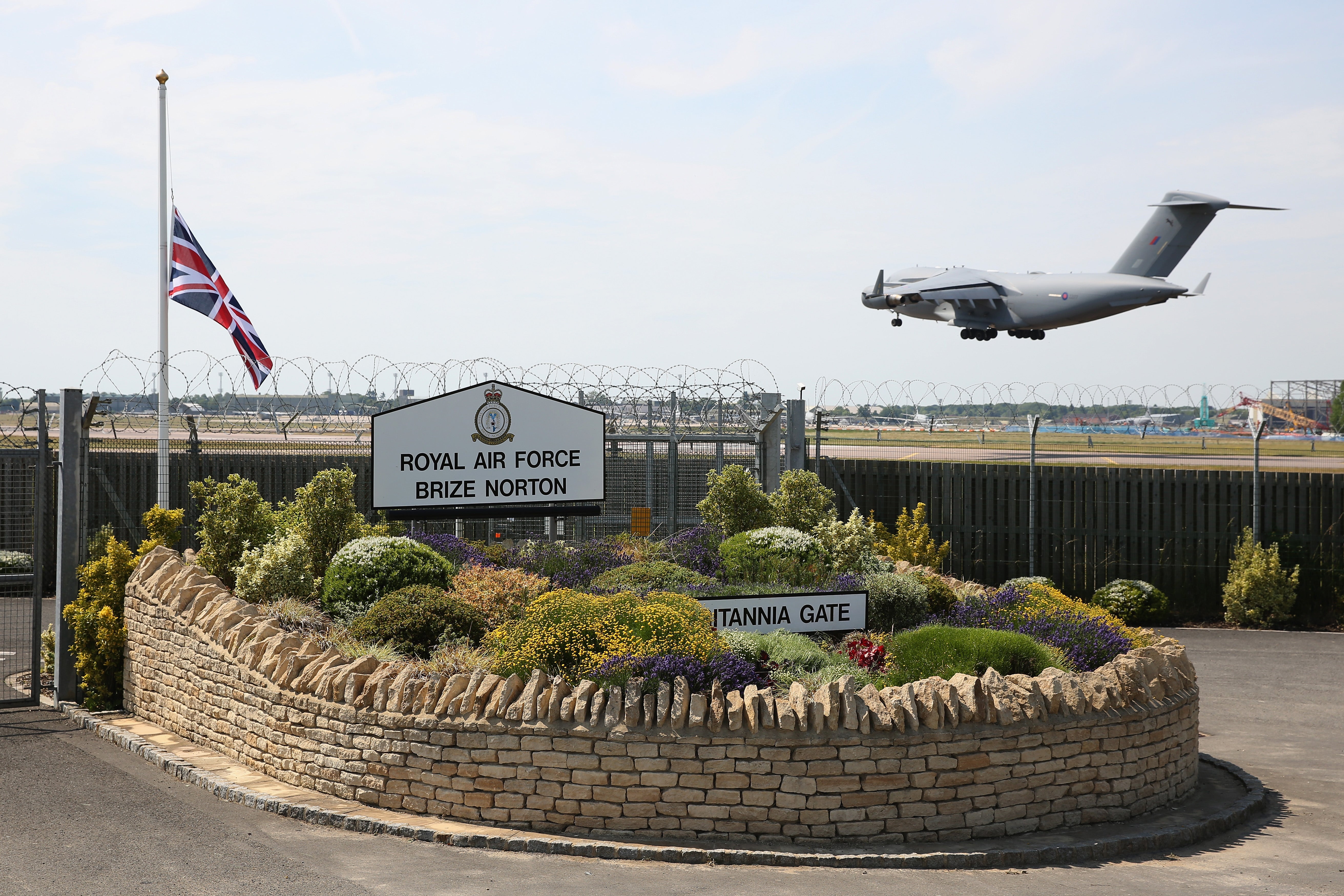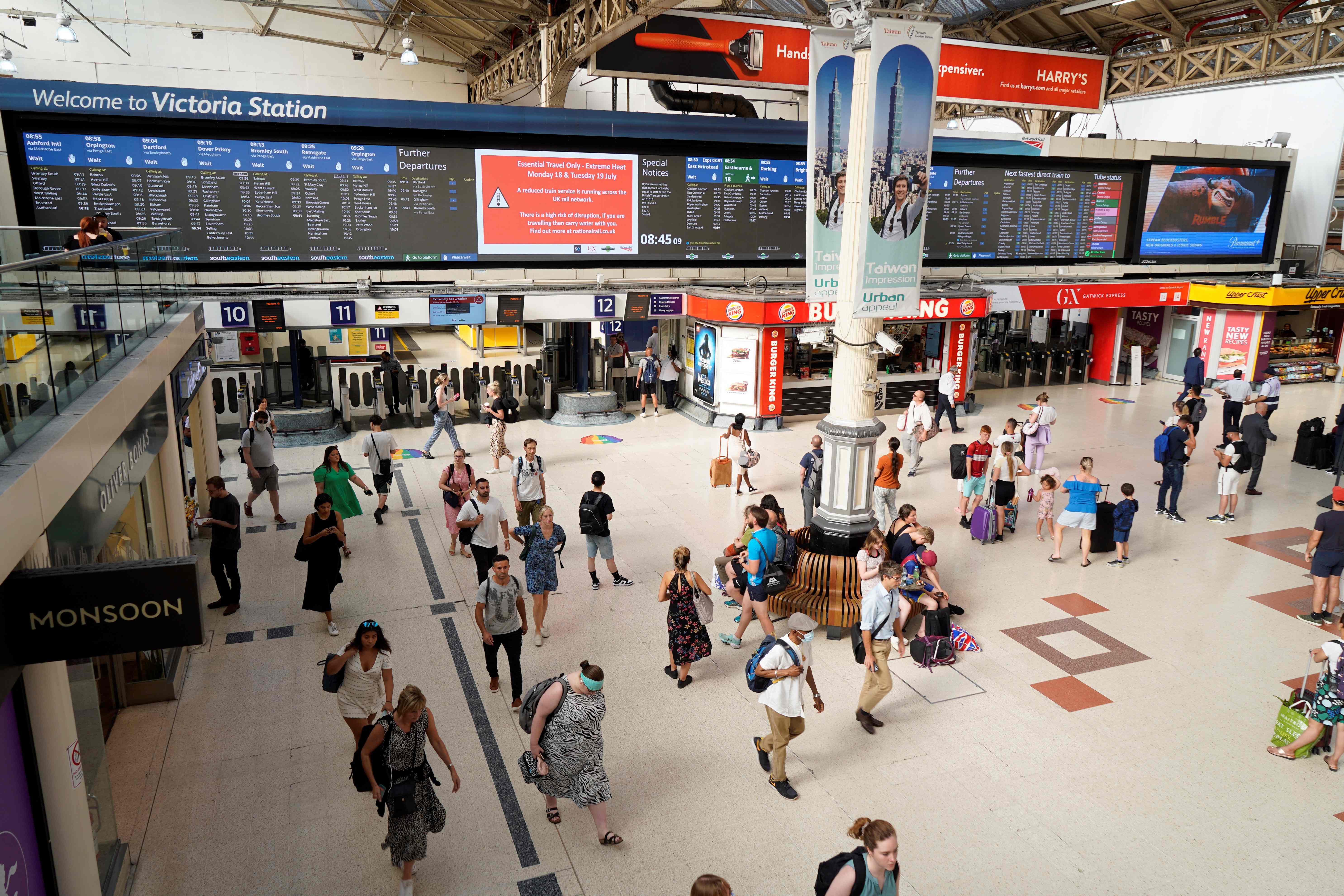RAF stops flights to Brize Norton as ‘runway has melted’
Britain’s biggest air base forced to divert planes due to extreme weather
Your support helps us to tell the story
From reproductive rights to climate change to Big Tech, The Independent is on the ground when the story is developing. Whether it's investigating the financials of Elon Musk's pro-Trump PAC or producing our latest documentary, 'The A Word', which shines a light on the American women fighting for reproductive rights, we know how important it is to parse out the facts from the messaging.
At such a critical moment in US history, we need reporters on the ground. Your donation allows us to keep sending journalists to speak to both sides of the story.
The Independent is trusted by Americans across the entire political spectrum. And unlike many other quality news outlets, we choose not to lock Americans out of our reporting and analysis with paywalls. We believe quality journalism should be available to everyone, paid for by those who can afford it.
Your support makes all the difference.The RAF has halted flights in and out of its biggest airbase after the runway reportedly melted on a day of extremely hot weather.
RAF Brize Norton in Oxfordshire was forced to divert traffic to other airfields due to safety concerns, a spokesperson said.
A source told Sky News the decision was taken on Monday morning because the runway’s tarmac had melted in the heat.
In a statement the RAF confirmed flights were being sent elsewhere as they could not take off safely from Brize Norton.
The air force said the diversions had not interfered with military business.
“During this period of extreme temperature flight safety remains the RAF’s top priority, so aircraft are using alternative airfields in line with a long-established plan. This means there is no impact on RAF operations,” the statement said.
Brize Norton sits in the area of Britain on red alert for extreme heat on Monday and Tuesday, with temperatures on Monday expected to peak at 35C.

The runway at the base usually operates around the clock and is Britain’s main gateway for defence air transport.
Flights were also suspended at Luton airport due to the runway melting, with planes being diverted to nearby Stansted.
A statement posted to Luton’s Twitter account read: “Following today’s high temperatures, a surface defect was identified on the runway.
“Engineers were called immediately to site and repair works are currently in progress to resume operations as soon as possible.”
The UK’s highest recorded temperature is expected to be exceeded twice in the next two days and the Met Office has declared the country’s first-ever national heat emergency.

Authorities warned people against unnecessary travel during the extreme heat, leading millions more people to work from home.
Network Rail said the number of passengers using major stations across Britain on Monday was around 20 per cent down on a week ago.
Location technology firm TomTom said road congestion at 9am was lower in most UK cities than at the same time last week.
In London, congestion levels fell from 53 per cent on 11 July to 42 per cent on Monday.
In Birmingham they were down from 46 per cent to 43 per cent, in Manchester they decreased from 45 per cent to 37 per cent, and in Glasgow they dropped from 17 per cent to 12 per cent.

The figures reflect the proportion of additional time required for journeys compared with free-flow conditions.
Transport for London, which advised people to “only travel if essential”, said around 1.06 million entries and exits were made by London Underground passengers up to 10am on Monday.
This is down 18 per cent compared with the same period last Monday.
Some 1.07 million bus journeys were made up to 10am, a 10 per cent decrease week on week.

Join our commenting forum
Join thought-provoking conversations, follow other Independent readers and see their replies
Comments